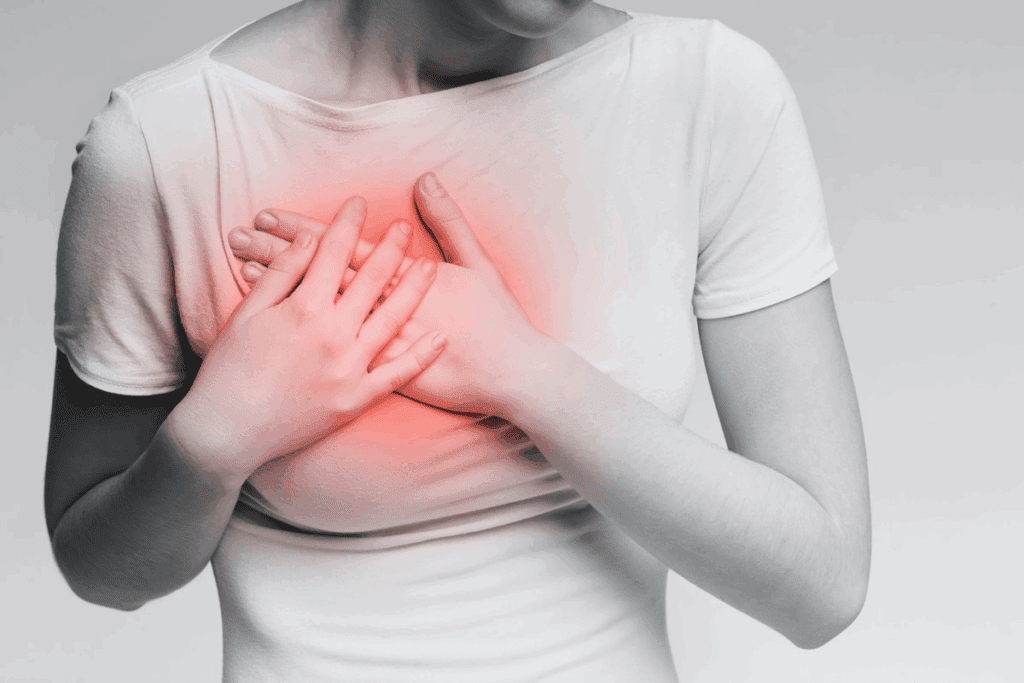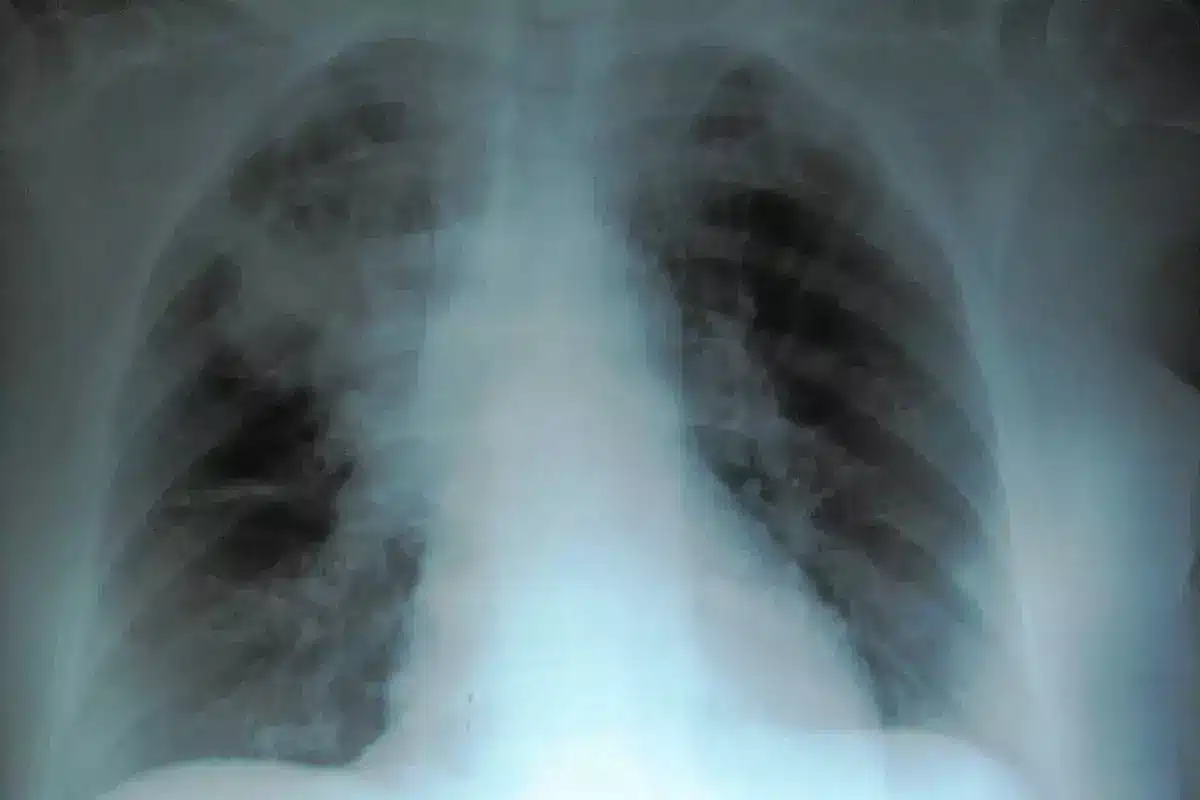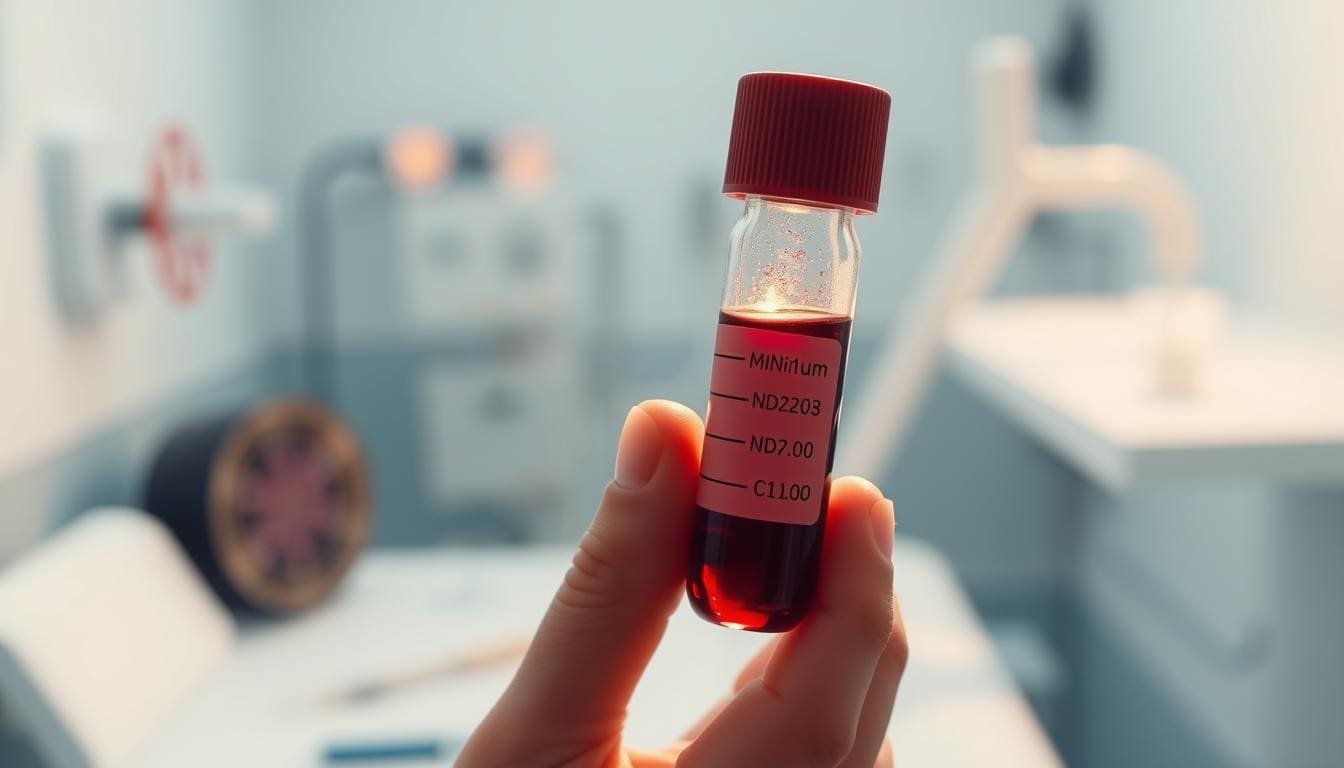
Chest pain and indigestion can be scary, sometimes feeling like a heart attack. At Liv Hospital, we guide patients. We explain why acid reflux and indigestion lead to chest discomfort. And how to tell if it’s a heart issue or not.
Heartburn, a sign of acid reflux, isn’t about the heart. Yet, it can feel like chest pain. It happens when stomach acids rise into the esophagus. This article will dive into the connection between acid reflux and chest pain. We’ll also look at how indigestion can be mistaken for a heart attack.
Key Takeaways
- Understanding the difference between acid reflux symptoms and a heart attack.
- Recognizing how indigestion can mimic cardiac issues.
- The importance of distinguishing between chest pain causes.
- Exploring treatment options for acid reflux and indigestion.
- Preventive measures to reduce the occurrence of acid reflux.
Understanding Acid Reflux and GERD

Acid reflux happens when stomach acid flows back into the esophagus. This happens when the lower esophageal sphincter (LES) doesn’t close right. It lets stomach contents move back up.
What Happens During Acid Reflux?
Stomach acid, with digestive enzymes and hydrochloric acid, flows back into the esophagus. The esophagus isn’t made for this acidic mix. It gets irritated and inflamed.
This backflow can cause discomfort or severe pain. It often feels like a burning in the chest, known as heartburn.
How often and how bad acid reflux is can differ a lot. Some people get it now and then, which is usually okay. But if it happens a lot or is very bad, it might be a sign of something more serious.
The Difference Between Occasional Reflux and GERD
Gastroesophageal reflux disease (GERD) is a long-term condition with frequent and severe acid reflux. It’s different from occasional acid reflux because it can cause lasting damage to the esophagus if not treated.
Occasional reflux is usually caused by things like what you eat or how you sit. It doesn’t harm you long-term. But GERD is a constant problem that needs medical help to avoid serious issues like esophagitis or Barrett’s esophagus.
Knowing the difference is important for figuring out what to do. For occasional reflux, changing your diet or taking over-the-counter meds might help. But GERD often needs stronger treatments, like prescription meds, lifestyle changes, or even surgery.
Can Acid Reflux Cause Chest Pain? The Physiological Mechanism

Chest pain from acid reflux comes from irritation and nerve sensitivity. Stomach acid going back into the esophagus irritates and inflames it. This leads to pain, often felt in the chest.
The esophagus and heart are close, making it hard to tell if pain is from the esophagus or heart. The physiological mechanism behind acid reflux-induced chest pain involves several key factors. These include irritation of the esophageal lining and the sensitivity of the esophagus nerves.
Esophageal Irritation and Inflammation
Acid reflux irritates the esophagus lining, causing inflammation. This irritation leads to pain, often felt as a burning sensation or discomfort in the chest. The severity of the pain depends on the extent of irritation and inflammation.
“The esophagus is not designed to handle the acidic nature of stomach contents, and when exposed to acid, it can become inflamed and painful.”
Nerve Sensitivity and Pain Perception
The nerves in the esophagus are key in pain perception. When the esophagus is irritated, these nerves become more sensitive. This heightened sensitivity can make even mild irritation feel more severe, contributing to the discomfort in acid reflux-related chest pain.
Understanding the mechanism behind acid reflux-induced chest pain is key to managing symptoms. It helps distinguish it from other chest pain causes, like heart issues. By recognizing the role of esophageal irritation and nerve sensitivity, individuals can better manage their symptoms and seek medical care when needed.
Common Symptoms of Acid Reflux-Related Chest Pain
It’s important to know the symptoms of acid reflux chest pain. This helps in getting the right treatment. Acid reflux chest pain can feel very uncomfortable in different ways.
Burning Sensation Behind the Breastbone
A common symptom is a burning feeling behind the breastbone, known as heartburn. This happens when stomach acid goes back up into the esophagus. It irritates the lining and causes pain.
Key characteristics of this symptom include:
- A burning or sour taste in the mouth
- Discomfort or pain behind the breastbone
- Worsening of symptoms when lying down or bending over
Pressure and Tightness in the Chest
Another symptom is feeling pressure or tightness in the chest. This can be mistaken for heart pain, so it’s key to know the difference.
Notable features of pressure and tightness include:
- A sensation of heaviness or squeezing in the chest
- Discomfort that may radiate to the arms, back, or shoulders
- Symptoms that can be exacerbated by eating or lying down
Chest Pain Symptoms Specific to Acid Reflux
Some symptoms are more specific to acid reflux. They can help tell it apart from other chest pain causes. These include:
- Regurgitation of food or sour liquid
- Difficulty swallowing or a sensation of food getting stuck
- Chest pain that improves with antacids or acid reducers
Knowing these symptoms can help people get the right medical help and treatment.
Where Is Reflux Pain Felt? Mapping Chest Discomfort
Knowing where reflux pain is felt is key to diagnosing and treating acid reflux. This pain, often called heartburn, can show up in different parts of the chest.
Heartburn on Left Side of Chest
Many people feel heartburn on the left side of their chest. It feels like a burning sensation that spreads from the middle of the chest to the left.
A study in the Journal of Clinical Gastroenterology found that heartburn is more common on the left. This is because of how the esophagus is positioned and how stomach acid flows back up into it.
Sternum Pain and Central Chest Discomfort
Sternum pain and discomfort in the middle of the chest are also common in acid reflux sufferers. The sternum, or breastbone, is in the chest’s center. Pain here can signal reflux.
A table below shows where reflux pain usually occurs:
| Location | Characteristics |
| Left Side of Chest | Burning sensation, often radiating from the center |
| Central Chest (Behind Sternum) | Pressure, tightness, or burning sensation |
| Radiating to Other Areas | Pain can spread to the neck, throat, or jaw |
Radiation of Pain to Other Areas
Reflux pain can also spread to the neck, throat, or jaw. This can be scary and might make people think they have heart problems instead of digestive issues.
“The pain from acid reflux can sometimes be referred to other areas, making diagnosis challenging without proper evaluation.”
The image below shows how the esophagus’s anatomy and its close location to other structures can lead to different pain locations.
Knowing these patterns helps doctors diagnose and treat acid reflux better.
Indigestion Pain in Left Side: Why Location Matters
Where you feel indigestion pain can tell you a lot about what’s causing it. Left-sided pain is often a big worry. It makes you think about possible reasons and what it might mean.
Anatomical Reasons for Left-Sided Discomfort
The way our bodies are built helps explain why indigestion pain often hits the left side. The esophagus, a key part of digestion, runs through the chest. It can send pain to the left side because of its close connection to nerves.
Several anatomical factors contribute to left-sided discomfort:
- The stomach’s position and how it connects to the esophagus affects where pain goes.
- Nerves in the chest, near the esophagus, can send pain to the left side.
- The diaphragm, which separates the chest and belly, can also cause left-sided pain if it gets irritated.
Distinguishing Left-Sided Indigestion from Cardiac Pain
When you feel pain on the left side, it’s important to tell if it’s from indigestion or your heart. Both can cause left-sided pain, but they have different causes and meanings.
“The similarity in presentation between cardiac and gastrointestinal pain can make diagnosis challenging,” a study on chest pain diagnosis points out. Knowing the differences between these pains is key for the right diagnosis.
Here are the main differences:
| Characteristics | Indigestion Pain | Cardiac Pain |
| Nature of Pain | Burning, squeezing, or cramping | Pressure, heaviness, or tightness |
| Triggers | Eating, lying down | Exertion, stress |
| Relief Factors | Antacids, sitting up | Rest, nitroglycerin |
Knowing these differences helps figure out why you’re feeling left-sided chest pain. It’s important for getting the right medical help.
Indigestion and Tight Chest: Understanding the Sensation
Indigestion can sometimes feel like a tightness in the chest. This feeling is unsettling and can be caused by several factors. These include the way the esophagus reacts and the effects of stress and anxiety.
What Causes Indigestion Tightness in Chest
The tightness in the chest from indigestion usually comes from the esophagus irritation. When stomach acid goes back up into the esophagus, it can cause inflammation. This leads to a feeling of tightness or discomfort in the chest.
This condition is often linked to acid reflux or gastroesophageal reflux disease (GERD). The esophagus and its nerves are key in this feeling. The nerves can become too sensitive from chronic acid exposure, making normal stimuli feel like chest tightness.
The Relationship Between Stress, Anxiety, and Chest Tightness
Stress and anxiety can make chest tightness from indigestion worse. When we’re stressed or anxious, our body’s “fight or flight” response kicks in. This releases hormones like adrenaline, causing the chest and esophagus muscles to tighten up.
People under stress might also eat badly, which can irritate the esophagus more. Eating quickly, eating spicy or fatty foods, or drinking alcohol can all make indigestion worse. These actions can further irritate the esophagus and increase chest tightness.
When Indigestion Chest Pain Becomes Concerning
While chest tightness from indigestion is usually not serious, there are times it can be. You should see a doctor if you have severe chest pain, trouble breathing, or pain that spreads to the arm, jaw, or neck. If you have heart disease, it’s also important to get checked.
If you keep getting chest tightness or have other symptoms like trouble swallowing, vomiting blood, or black tarry stools, see a doctor. They can evaluate and treat you properly.
Can Heartburn Mimic a Heart Attack? The Alarming Similarity
Many people don’t know that heartburn can feel like a heart attack. This is because both can cause chest pain. It’s hard to tell them apart without a doctor’s help.
Overlapping Symptoms Between Digestive and Cardiac Issues
Heartburn and heart attacks share similar symptoms, causing confusion. Both can make your chest feel tight or burn. Heartburn is from stomach acid, while a heart attack is from blocked arteries.
It’s hard to know what’s causing chest pain without a doctor. Some common symptoms include:
- Chest tightness or pressure
- Burning sensation in the chest or throat
- Discomfort that radiates to the arms, back, or jaw
Why the Body’s Pain Signals Can Be Confusing
The body’s pain signals can be tricky, like with chest pain. The nerves in the chest can send pain to different places. This makes it hard to find the source of pain.
Understanding pain signals is key for both patients and doctors. We need to look at the whole situation, including medical history and other symptoms. This helps figure out what’s causing the pain.
We should be careful about chest pain and get medical help if unsure. This way, we get the right care and treatment.
Heart Attack vs. Acid Reflux: Critical Differences
It’s important to know the difference between a heart attack and acid reflux. Both can cause chest pain, but they have different causes and effects.
Distinguishing Features of Cardiac Chest Pain
Cardiac chest pain is often linked to a heart attack. It feels like pressure or tightness in the chest. This pain can spread to the arm, neck, or jaw.
Key characteristics of cardiac chest pain include:
- Pressure or squeezing sensation in the chest
- Pain radiating to the arm, neck, or jaw
- Shortness of breath
- Cold sweats
- Nausea or lightheadedness
Red Flags That Suggest a Heart Attack
Some symptoms suggest a heart attack more than acid reflux. Look out for severe shortness of breath, pain in the arm or jaw, and cold sweats.
| Symptom | Heart Attack | Acid Reflux |
| Chest Pain Characteristics | Pressure, squeezing, or tightness | Burning sensation, often related to food |
| Radiation of Pain | Often radiates to arm, neck, or jaw | Typically localized to the chest |
| Associated Symptoms | Shortness of breath, cold sweats, nausea | Regurgitation, difficulty swallowing |
Diagnostic Approaches to Differentiate the Causes
Doctors use different tests to tell if it’s a heart attack or acid reflux. They might do an electrocardiogram (ECG) to check the heart. Blood tests can look for heart damage. An endoscopy can check for reflux damage in the esophagus.
Knowing these differences helps patients get the right care. It’s key to understand these symptoms and seek help when needed.
When to Seek Emergency Medical Attention
Chest pain can be a sign of a serious problem. It’s important to know when to get help. Acid reflux and indigestion are common, but a heart attack is a serious condition.
Warning Signs That Should Never Be Ignored
Some symptoms with chest pain need quick medical help. These include:
- Severe chest pain or pressure that doesn’t subside
- Shortness of breath or difficulty breathing
- Pain radiating to the arm, neck, jaw, or back
- Dizziness or fainting
- Nausea or vomiting
- Rapid or irregular heartbeat
Seek emergency medical attention if you have these symptoms. The American Heart Association says, “Acting F.A.S.T. can save lives. Recognize the warning signs of a heart attack and call 911 immediately.”
“The most common symptom of a heart attack is chest pain or discomfort. It is often described as a feeling of pressure, squeezing, or fullness in the center of the chest.”
Better Safe Than Sorry: Why Chest Pain Warrants Evaluation
Chest pain is serious, no matter the cause. Even if it’s acid reflux or indigestion, see a doctor if it’s bad or lasts a long time. Ignoring a serious condition is too risky.
“Better safe than sorry” is true for chest pain. Always choose caution and get medical help when unsure.
What to Tell Emergency Responders About Your Symptoms
When you call for emergency help, tell them everything about your symptoms. Be ready to say:
| Symptom | Description |
| Location and nature of pain | Is it sharp, dull, burning, or crushing? |
| Duration and triggers | When did it start? Does it change with movement or deep breathing? |
| Associated symptoms | Are there any other symptoms like nausea, dizziness, or shortness of breath? |
Give accurate and quick information. It helps the emergency team and your treatment.
Conclusion: Managing Reflux-Related Chest Pain While Staying Vigilant
Acid reflux can cause chest pain that feels like a heart attack. To handle this, we need to make lifestyle changes, eat differently, and sometimes see a doctor.
It’s important to manage acid reflux but also watch for heart attack signs. We should know the difference between chest pain from acid reflux and heart problems. This way, we can get help fast if it’s a heart issue.
Understanding acid reflux and its symptoms helps us deal with chest pain better. This knowledge helps us get the right medical care. It ensures we handle acid reflux and avoid heart risks.
In short, we need to balance managing acid reflux with watching for heart symptoms. Being informed and proactive in our health is key. We should know when to get medical help to stay healthy.
FAQ
Can acid reflux cause chest pain?
Yes, acid reflux can cause chest pain. This happens when the esophagus gets irritated and inflamed. It leads to discomfort and pain in the chest area.
Can indigestion feel like a heart attack?
Yes, indigestion can sometimes feel like a heart attack. The symptoms of acid reflux, like chest tightness and pain, can be similar to those of a cardiac event.
What are the common symptoms of acid reflux-related chest pain?
Common symptoms include a burning sensation behind the breastbone. You might also feel pressure and tightness in the chest. Pain can radiate to the neck, throat, or jaw.
Where is reflux pain typically felt?
Reflux pain is often felt in the central chest area behind the sternum. It can also be felt on the left side of the chest. Sometimes, it can radiate to other areas.
How can I differentiate between acid reflux and a heart attack?
If you’re unsure, it’s vital to seek medical attention. Doctors use ECG, blood tests, and medical history to tell the difference.
Can heartburn mimic a heart attack?
Yes, heartburn can sometimes mimic the symptoms of a heart attack. This can cause confusion and alarm due to overlapping symptoms between digestive and cardiac issues.
What are the warning signs that I should never ignore when it comes to chest pain?
Warning signs include severe chest pain and shortness of breath. Other symptoms that could indicate a heart attack or other serious cardiac issues should not be ignored. If you experience these, seek emergency medical attention.
Why does indigestion cause chest pain?
Indigestion causes chest pain due to irritation and inflammation of the esophagus. This can lead to discomfort and pain in the chest area. Stress and anxiety can make it worse.
Can stress and anxiety exacerbate indigestion tightness in the chest?
Yes, stress and anxiety can worsen the sensation of tightness in the chest associated with indigestion. Managing stress is key to overall health.
How can I manage reflux-related chest pain?
Managing reflux-related chest pain involves understanding and addressing the underlying causes of acid reflux. Making lifestyle changes and, if necessary, seeking medical treatment for GERD or other related conditions is important.
References:
- O’Rourke, M. F. (2018). Structure and function of systemic arteries: reflections on the vascular wall and blood flow. Vascular Medicine, 23(4), 316-323. https://pubmed.ncbi.nlm.nih.gov/30016416/








